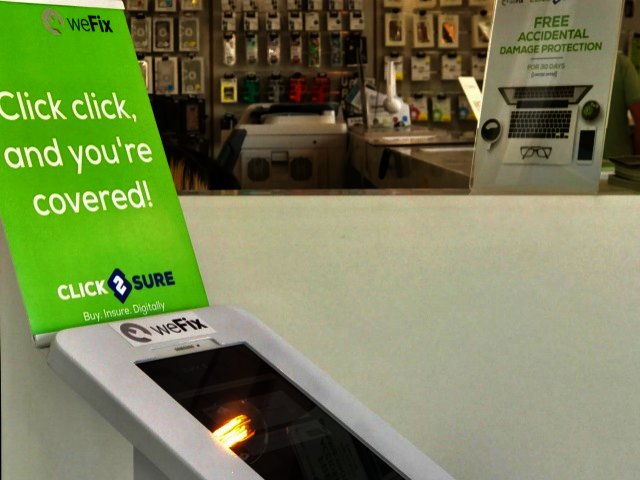The 2017 World Insurance Report (WIR), released last month by Capgemini and Efma, confirmed that a wave of new digital technology is confronting most insurance sectors. As with the explosion of FinTech, the InsurTech movement is promising lower cost, and efficiency, specifically to Millenials who can grasp the offering with less cynicism.
According to a summary issued in September by CapGemini, "Insurers agree that the complementary strengths of InsurTechs and incumbents form a solid case for collaboration. In fact, of the more than 100 senior executives interviewed from various insurance firms in 15 markets, a strong majority (75%) said that developing InsurTech capabilities would help them better meet customers’ evolving demands. And more than half (52.7%) agreed that having InsurTech capabilities would help them quickly design personalised products".
A recent example of this is seen in the announcement of weFix's partnership with Click2Sure, allowing the smart device repair specialists' 36 stores and nationwide footprint to offer an insurance policy at the point of check-out for a new range of refurbished smartphones, while also offering a complimentary in-store insurance post-repair.
Up until recently, in a very traditional insurance industry, a consumer would ordinarily have to phone a broker or call centre to enquire about getting their cell phone insured, but the new disruptive model ensures that, as you leave the store, that device is insured - via a full-stack digital platform which enables partners such as weFix to attach a protection plan to the purchase or repair of an item.
There are two options, the range of refurbished Apple phones can come with an optional embedded one-year protection plan from Click2Sure, but customers who have not purchaseda refurbished phone from weFix can also seek cover for their smartphone repair costs when they have picked up their fully repaired device at one of the weFix stores, having been given a clean bill of health.
The disruption is driven by both cost, accessibility and digital model - with technology taking away human intervention and administration, typically elements that would increase cost. The other well-known problem with insurance is complexity and small print, which has been removed and simplified.
Daniel Guasco, founder of Click2Sure, explains, "The entire journey is digital. From the point of purchasing your cover, to upgrading it, deactivating or processing a claim, it's all done online and is fully compliant with current legislation. So for example, with weFix, a customer takes their cracked screen in, it gets checked in and repaired and the customer then receives 30 days free limited cover post-repair, which covers up to R500 repair costs during that period. As the customer collects the phone, Click2Sure sends an activation link via email, alongside the policy documents, and he or she accepts the 30 days free, opts in, and then can choose to later upgrade their insurance to a longer term, via a sign-up process.
But what about cost? Simon van der Merwe, weFix's GM of Sales and B2B , explains "Naturally, the insurance product is competitively priced, and is based on the value of the phone - our range of refurbished phones start from R2 599 and the cost of cover on that same iPhone 5C with an embedded C2S protection plan and weFix screen protector would be R2 999 for example, and prices vary depending on the phone model."
PREVIOUS ARTICLENEXT ARTICLE
MISC

Smartphone repairer locks in disruptive insurance model
By Press Release 24 November 2017 | Categories: MiscVIEWING PAGE 1 OF 1
VIEWING PAGE 1 OF 1
USER COMMENTS
Most Read Articles
Read

Magazine Online
TechSmart.co.za is South Africa's leading magazine for tech product reviews, tech news, videos, tech specs and gadgets.
Start reading now >
Download latest issue
Have Your Say
What new tech or developments are you most anticipating this year?
New smartphone announcements (46 votes)
Technological breakthroughs (29 votes)
Launch of new consoles, or notebooks (14 votes)
Innovative Artificial Intelligence solutions (29 votes)
Biotechnology or medical advancements (24 votes)
Better business applications (160 votes)



